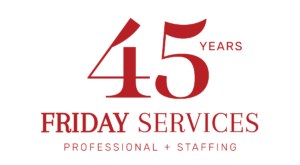Social media sites have undoubtedly changed employers’ hiring practices. Asheville employment agencies know that anything posted online can resurface—nothing is truly private. Employers are using this to their advantage; if they’re going to invest time and money into hiring and training you, they’re also going to spend a few minutes checking your presence on LinkedIn, Facebook, and Twitter.
Here are some tips on preparing your online profiles during your job search. In a tough economy, many employers don’t want to take chances. Don’t give them a reason to pass you by for someone seemingly safer.
1. 80% of Success is Showing Up.
Contribute to your social networks! Participate in Twitter chats on topics you’re interested in, post on Facebook about the industry you are looking to break into and join relevant LinkedIn groups. These are all great ways to make yourself more visible to recruiters and future employers—and increase your own knowledge. However, be mindful of what you are putting online.
2. Your Digital Footprint Lasts Forever and is Not Private
You must realize that before you’re even called in for an interview, employers and recruiters are looking at your online social media profiles. One quick Google search and they will have full access to your online presence. Check out your Facebook profile as an outsider by viewing your Facebook page without logging in (or just ask a friend who you trust to evaluate your profile for you), and make sure that your profile is clean. Take the opportunity to clean them up now, and utilize your privacy settings. You can set them so that only your friends can see specific content about you. Also, if you post on social media about things that aren’t necessarily professional, be sure that your profile isn’t linked to your real name.
3. Social Media Goes Both Ways
Just as employers will likely “snoop” on you, you should take a moment to research a potential employer’s online presence. In addition to visiting the company’s website, utilize LinkedIn to learn more about the company and find out if you have any connections in common. Use Facebook, X, Instagram, and LinkedIn to find out what your interviewer’s interests are, what their professional history is, and anything that you might leverage to make yourself stand out from your job-searching competition. When you demonstrate to an employer that you’ve gone the extra step to do research, they will be impressed by your initiative.
4. Stand Out From the Crowd
Social media profiles can be as important as your resume. Employers will be looking at your social media accounts. This gives you the chance to present a clean, professional online persona and stand out from your fellow job searchers. Build your profiles to grab a recruiter or employer’s attention. Make it clear in your titles and headlines who you are, what you do and what you’d like to be doing in the future. Ask for recommendations on your LinkedIn profile from people who you have worked with in the past and who have a high opinion of you. It’s important that the people who recommend you also maintain professionalism. You can also follow thought-leaders in your field of expertise on Twitter and possibly engage with them in casual, yet professional ways. Finally, join LinkedIn groups where you will “virtually” meet valuable connections and make your own contributions to discussions.

